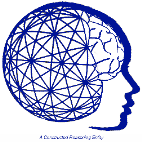Artificial intelligence
Artificial intelligence (AI) is the science and engineering of constructing "intelligent" machines. However, there is not a commonly accepted definition of what it would mean for a machine to be truly "intelligent." More broadly, AI is a field of science and engineering involved with the study, design and manufacture of systems that exhibit behavior that is reactive to conditions within the surrounding environment, adaptive toward the accomplishment of system goals, autonomous to varying degrees, and complex in breadth or scope. As the field progresses the context and expectations for the extent of reactiveness, adaptiveness, autonomousness and complexity of the systems has grown.
Artificial Intelligence has been described as a "broad sub-field within computer science" by many authors. Certainly, AI has its strongest roots within computer science, but it also has an interdisciplinary character that both draws from and feeds back to the fields of mathematics, philosophy, language, robotics, and possibly others. More recently, an interdisciplinary approach to cognition and intelligence has developed known as cognitive science. Though many of the methods are similar, cognitive science shifts the focus, by looking at the methods of artificial intelligence as a means to gaining greater insight into the basic mechanisms of perception, memory and thought.
While earlier systems (circa 1970s and 1980s) were well-described as narrow, brittle, and highly engineered, often relying on expert systems or knowledge bases, progress is being made in many areas.
It is generally recognized that much of human behavior is reactive, adaptive, automonous and complex as used in this definition and constitutes an instance of a "natural intelligence." Whether an AI system could rival the general cognitive capacity of humans is a matter of some debate that mostly centers on "free will", "self directed goals", "self awareness" and similar highly complex human behaviors.
AI has spawned many great successes such as advances in problem solving algorithms, search algorithms, knowledge representation, machine learning, object oriented programming, natural language understanding, and expert systems. However if you ask many experts in these areas, you frequently are told "this area is not AI."
Timeline of events in the field of AI
(list to be inserted)
Sub-fields
- Semantic networks
- Rule based inference systems
- Artificial neural networks and connectionism
- Genetic algorithms
- Fuzzy logic
- Constraint based programming
- Natural language processing
- Knowledge representation
- Bayesian methods
- Ontologies
- Evolution of artificial intelligence
Artificial intelligence by means of evolution
Cognitive scientist Lee Spector (Hampshire College, Amherst, MA) discusses the potential of exploiting evolutionary processes (e.g., natural selection) to create intelligence in machines, and he explores whether evolved artificial intelligence could meet the goals of AI in their broadest ambitions (Spector 2006). He claims a marginalization of the notion of evolved artificial intelligence in most AI texts, with the notable exception of N.J. Nilsson’s book (Nilsson 1998). He recognizes the evolutionary nature of genetic algorithms, but claims AI researchers relegate genetic algorithms to special purposes and not specifically to create evolved artificial intelligence machines.
Spector asserts that inasmuch we appreciate evolved intelligence (e.g., human intelligence) as the predominant form of intelligence in the world, AI workers should in principle take a serious interest in evolved AI.
He notes that the mechanisms involved in biological evolution has advanced enormously since Darwin: “We now know, for example, that biological evolution depends in important ways on genetic representation, on ecological interactions within and among populations, and on genetic control of gene expression, reproductive strategies, development, and learning.” On a positive note, he states:
The problem-solving performance of evolutionary algorithms has advanced significantly in the past decade or so, to the extent that human-competitive results have recently been achieved in several areas of science and engineering; these include evolved designs for antennas [cites (Lohn et al. 2004)], photonic crystals [cites (Preble et al. 2005)], quantum computer algorithms [cites (Spector 2004)], and even search heuristics [cites (Fukunaga 2002)]. Many of these results have been achieved using systems that incorporate at least a few of the insights from recent biological advances—for example, many involve the genetic representation of developmental processes instead of “adult” phenotypes—but there is still a long way to go if the computational work is to catch up with biology. Nonetheless, work in evolutionary computation is moving rapidly forward and it is doing so within an increasingly mature and stable research community. One indication of this progress is the recent establishment, by the Association for Computing Machinery, of a full-fledged Special Interest Group on Genetic and Evolutionary Computation (SIGEVO).
Spector’s article merits a read for his concluding speculations on the future of the interaction of human design and evolved design in the creation of machines with artificial intelligence.
Founding parents
(Ordered by alpha)(These should link to articles on the individuals.)
Notes
- ↑ McCarthy coined the term "artificial intelligence"
References cited in text
- Arranged in alphabetical order by first author's last name.
Fukunaga A. (2002) Automated discovery of composite SAT variable-selection heuristics, in: Proceedings of the Eighteenth National Conference on Artificial Intelligence, AAAI Press, Menlo Park, CA, pp. 641–648.
Lohn J, Homby GS, Linden D. (2004) An evolved antenna for deployment on NASA’s space technology 5 mission, in: U.-M. O’Reilly, R.L. Riolo, T. Yu, B. Worzel (Eds.), Genetic Programming Theory and Practice II, Springer, New York.
Nilsson NJ. (1998) Artificial Intelligence: A New Synthesis (Google Books Preview) Morgan Kaufmann, San Francisco, CA. ISBN 1558604677.
Preble S, Lipson M, Lipson H. (2005) Two-dimensional photonic crystals designed by evolutionary algorithms, Applied Physics Letters 86.
Spector L. (2004) Automatic Quantum Computer Programming: A Genetic Programming Approach (Google Books Preview). Springer, New York. ISBN 1402078943.
Spector L. (2006) doi:10.1016/j.artint.2006.10.009 Evolution of artificial intelligence. Artificial Intelligence 170:1251–1253.
